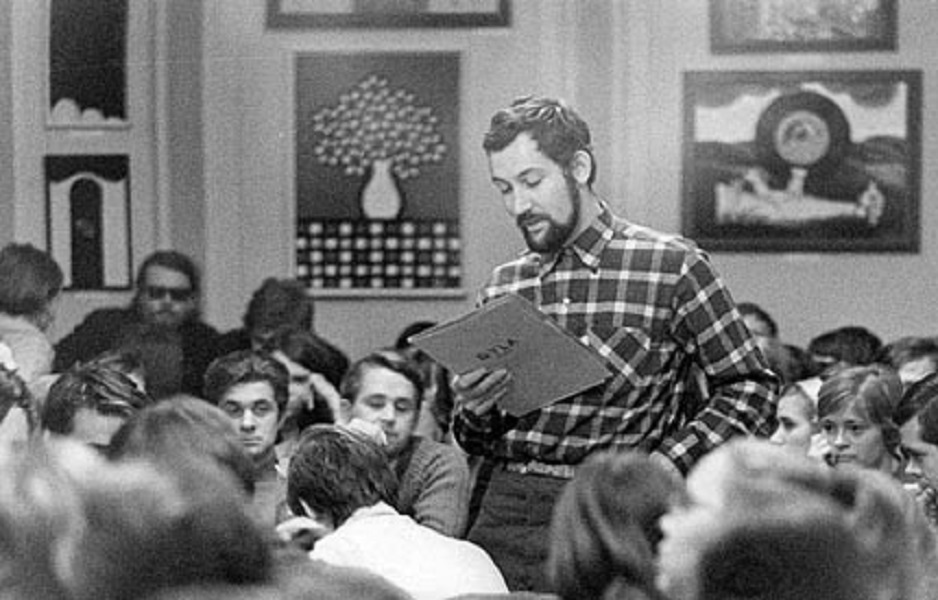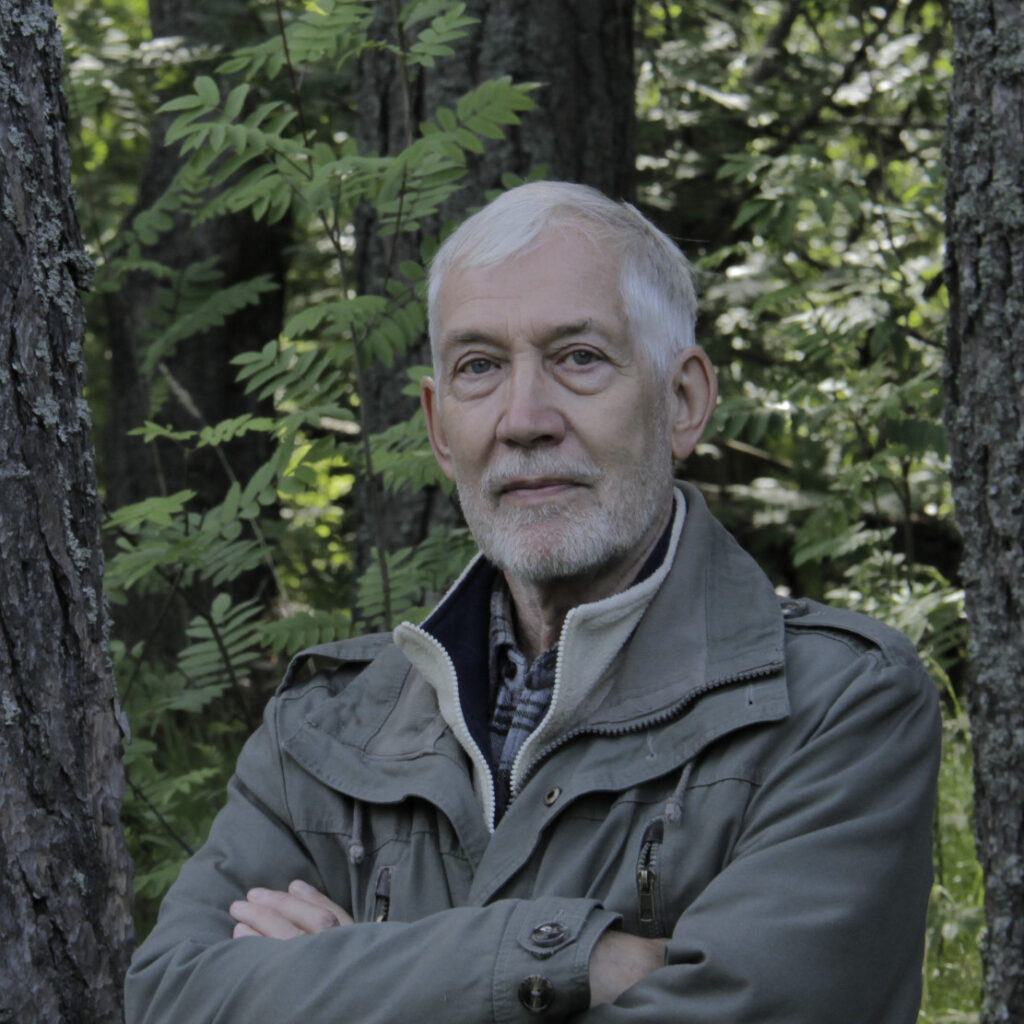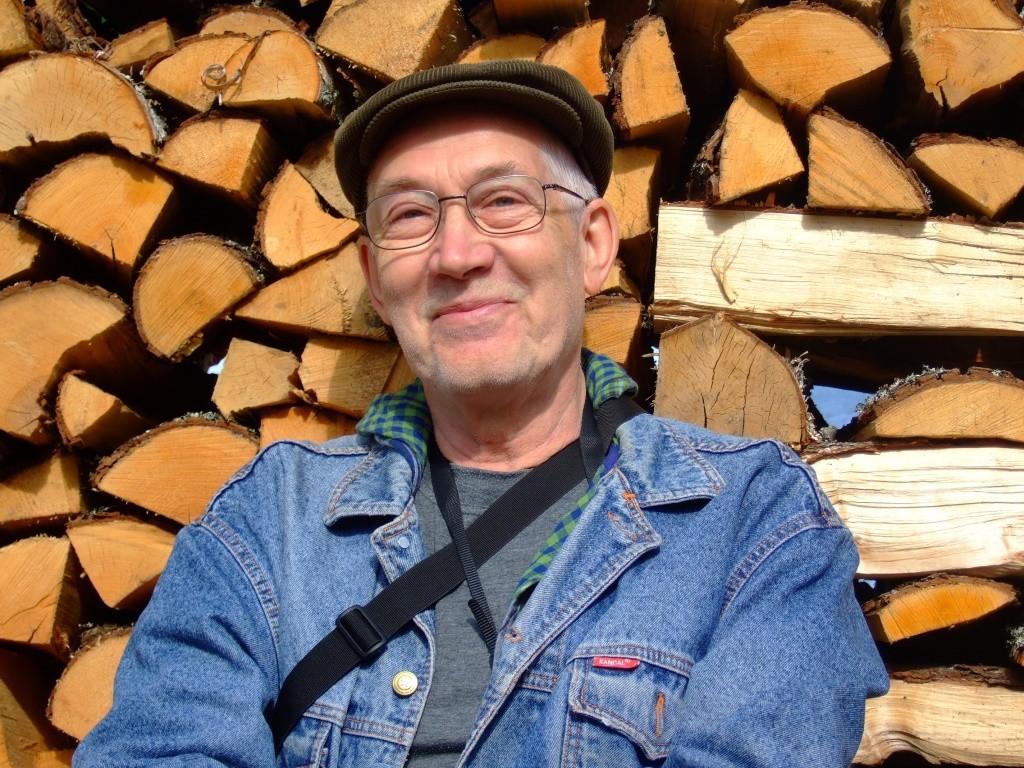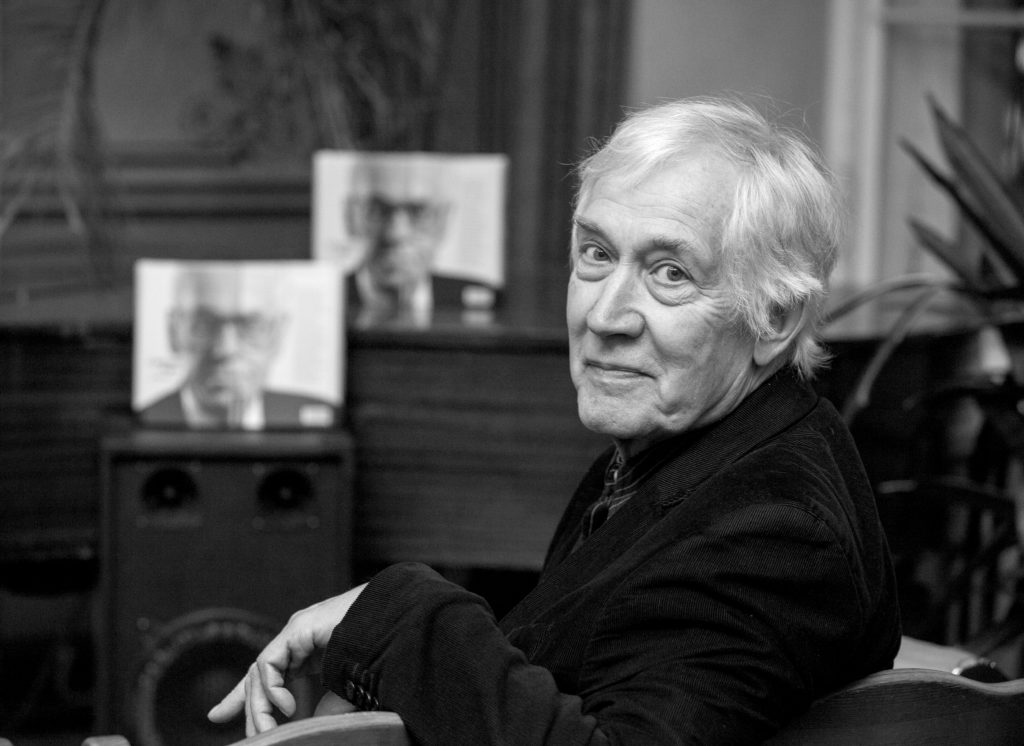The renowned Estonian poet, philosopher and culture critic, Jaan Kaplinski, died on 8 August at the age of 80 after a long illness.
Jaan Kaplinski, who in 2016 was named the Laureate of the European Literature Prize (Prix Européen de Littérature) and in the same year, was nominated for the Nobel Prize in Literature, was a major figure in the Estonian cultural scene and society for the past 50 years.
A European humanist, aware of Eastern cultures
Kaplinski was born on 22 January 1941 (during the first Soviet occupation of Estonia and in the midst of the Second World War) in Tartu, the country’s second largest town. His mother was Estonian and his Polish Jewish father was Jerzy Kaplinski, a professor of philology at the University of Tartu, who was arrested by the Soviet troops and perished of starvation in a Soviet labour camp in 1945.
Jaan Kaplinski studied Romance language and linguistics at Tartu University, graduating as a French philologist in 1964. From 1965, he started publishing numerous collections of poems, prose and essays. Over the years, his essays dealt with environmental problems, philosophy of language, classical Chinese poems, philosophy, Buddhism and Estonian nationalism.

Kaplinski’s poetry has been described as written by a European humanist who has grown very aware of Eastern cultures. As a poetic rebel, he said his poetry was “part of an expression of a love for the world”, a long poetic list of people and things he appreciated.
Long interested in Celtic mythology and languages, Native Americans and classical Chinese philosophy and poetry, one important matter is the allusion in his poetry to Buddhism. Kaplinski, who was otherwise critical of religions, introduced the oriental way into Estonian poetry.
Songlike poetry
As a poet, Kaplinski avoided routine and tried to connect to the basic flow of poetry by constant change. He wrote songlike poetry with rhythm and rhyme, poems that are sparsely worded and also towers of syllables, plus prophetic long poems. He poeticised the simple things in everyday life by writing poetry in colloquial language, devoid of metaphorical reference – Kaplinski compared that with a shaman journey.

Many of his poems gave lyrics to several Estonian songs, both in the local pop and classical music scene – Veljo Tormis composed the first works to Kaplinski’s poems in 1966.
Some of Kaplinski’s poems were originally written in English and Finnish, but in the 2000s, he also wrote in Russian. His first original collection of poems written in Russian, “Белые бабочки ночи” (White Butterflies of Night), published in 2014, received a “Russian Award” in Moscow by the contest that celebrates the best works written in Russian by foreign authors.
Kaplinski’s work has been translated into many languages, including English, Finnish, French, Norwegian, Swedish, Dutch, Icelandic, Hungarian, Japanese, Latvian, Lithuanian, Russian, Hebrew, Bulgarian and Czech.
One of the authors of the “Letter of 40 intellectuals”
In Estonia, Kaplinski was also known as one of the authors and initiators of the “Letter of 40 intellectuals” – a public letter signed by well-known Estonian intellectuals in 1980, protesting against the behaviour of the Soviet authorities in the then occupied Estonia.
When Estonia regained independence from the Soviet Union in 1991, Kaplinski briefly became a professional politician – from 1992 to 1995, he was a member of the Estonian parliament, Riigikogu. Although he was elected on the Centre Party list, he soon left the party and became an independent representative. In 2004, he joined the Estonian Social Democratic Party and was elected a member of the Tartu City Council in 2005 on the party list.

Over the past 30 years, Kaplinski was known for his independent mind, outspoken and honest views and focus on global issues. His opinion articles and interviews to the Estonian media hence almost always caught a public attention. He also updated his personal blog with thoughts on the country’s society.
In 2007, Kaplinski published his semi-autobiographical novel, “Seesama jõgi” (“The Same River”). The novel that took twelve years to complete is a mystical, intellectually deep story of a summer in the middle of the 1960s. The novel is also available in English.
In an interview given in June 2020, Kaplinski told the Estonian news portal, Delfi, that he had been diagnosed with ALS (amyotrophic lateral sclerosis), “the same disease that Stephen Hawking suffered from”. “However, I am lucky: in the winter, I turn 80 (Kaplinski turned 80 on 22 January 2021), so I probably won’t have much time left to suffer,” he said.
Kaplinski was married twice and is survived by his wife, three sons and a daughter from his second marriage, a daughter from his first marriage and another son from a long-term relationship.
Cover: Jaan Kaplinski. Photo by Raivo Tasso/Estonian Institute.


I was fortunate to meet and speak with Kaplinski many years ago at the Poetry Library in London. I’d been an admirer of his work since the wonderful Sam Hamill and Riina Tamm translations collected in ‘The Wandering Border’ first appeared. He had been one of my favourite contemporary poets ever since. He seems to have been in life as kind and wise a person as his writings suggest he was. In company with all who love his poems I deeply mourn his passing, and hope that more of his work will still be appearing in English translation.